Search Images
Browse Content (p. 211)
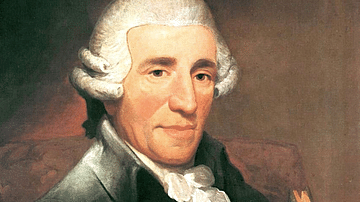
Image
Joseph Haydn, 1791
A 1791 oil-on-canvas portrait by Thomas Hardy of Joseph Haydn (1732-1809), the Austrian composer of classical music. (Royal College of Music Museum of Instruments, London)
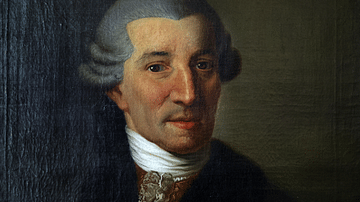
Image
Portrait of Joseph Haydn
A portrait by Christian Ludwig Seehas of Joseph Haydn (1732-1809), the Austrian composer of classical music. (Ludwigslust Palace, Germany)
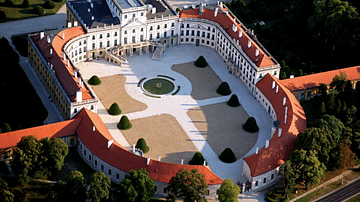
Image
Eszterháza Palace, Hungary
An aerial view of Eszterháza Palace, Hungary, first built in the 1760s by Nikolaus I, Prince Esterházy ‘the Magnificent’ (l. 1714-1790). (Daniel Somogyi-Tóth, www.legifotok.hu)

Image
Boston Tea Party
Boston Tea Party, 16 December 1773, hand-colored lithograph by Nathaniel Currier, 1846.
Springfield Museums, Springfield, MA.
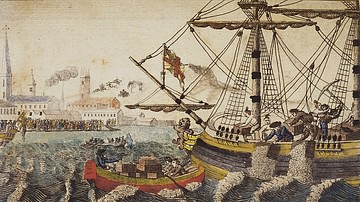
Image
The Boston Tea Party
American colonists dump British tea into Boston Harbor in the Boston Tea Party, 16 December 1773, illustration from The History of North America by W. D. Cooper. London: E. Newberry, 1789.
Library of Congress, Washington D.C.
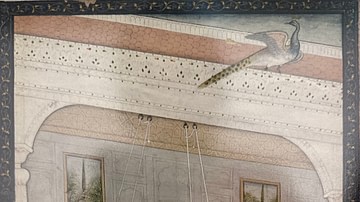
Image
Raga Hindola Miniature Painting
Raga Hindola (music swing), watercolor on paper, Guler School, 1810-1815.
Lahore Museum.
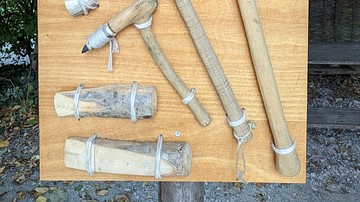
Image
Stone Age Tools (Modern Recreations)
A collection of modern recreations of Stone Age tools. The picture above shows (from top right to bottom left): A hatchet with a wing spar, used for felling trees A straight hatchet for shortening smaller pieces of wood (with a piece...
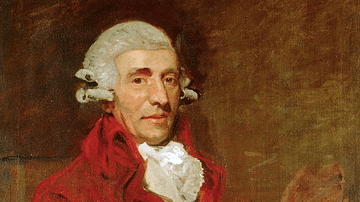
Image
Joseph Haydn by Hoppner
A c. 1791 oil-on-canvas portrait by John Hoppner of Joseph Haydn (1732-1809), the Austrian composer of classical music. (Royal Collection)
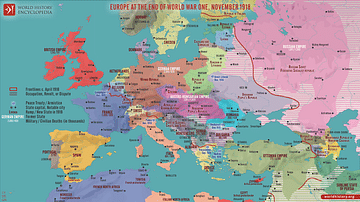
Image
Europe at the End of World War One, November 1918
A map illustrating the situation in Europe in mid-November 1918, in the immediate aftermath of World War I (The Great War or First World War). The armistice on November 11 (Armistice of Compiègne) marked the end of one of the deadliest conflicts...
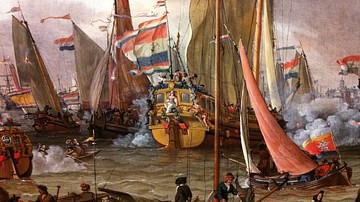
Image
Practice Fight of the Dutch Fleet in Honour of Peter the Great
Detail of Practice fight on the IJ in honour of Tsar Peter the Great on 1 September 1697, oil on canvas, by Abraham Storck, c. 1700.
Het Scheepvaartmuseum, Amsterdam.